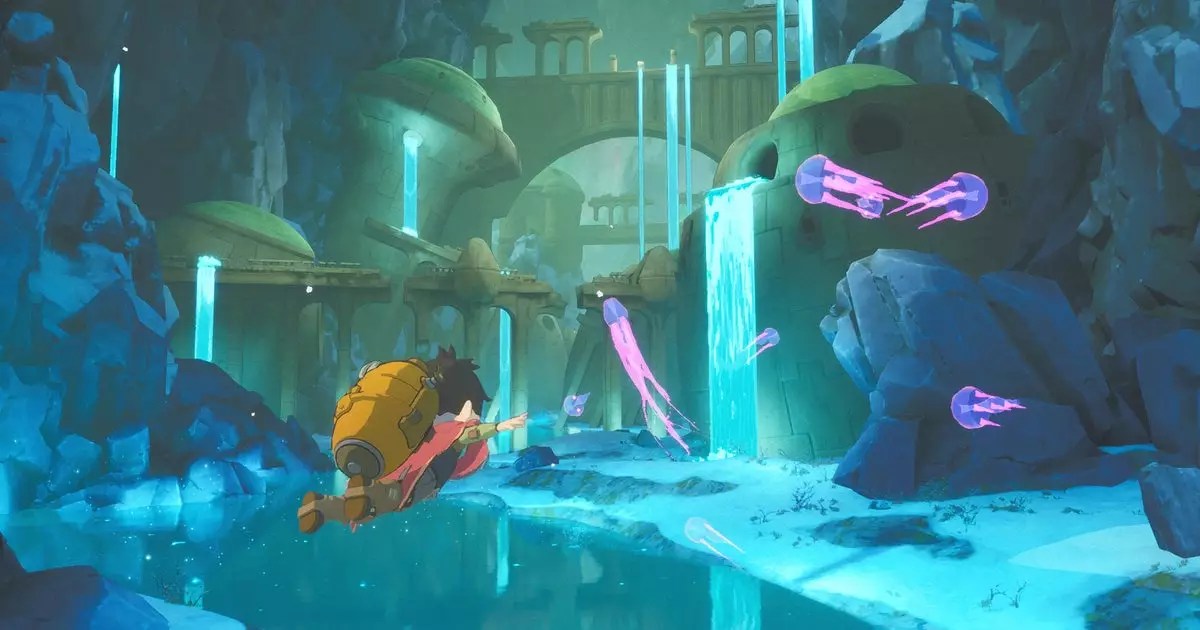At the intersection of gaming and animation lies “Europa,” a fresh puzzle-adventure video game that draws significant inspiration from the iconic visual storytelling style of Studio Ghibli. This homage is akin to how classic science fiction films like “Blade Runner” and “Aliens” have spawned their own sub-genres in the gaming world. With ethereal blue skies, vibrant green landscapes, and an overarching theme of exploration and flight, “Europa” invites players into a whimsical world that resonates strongly with Ghibli’s enchanting narratives.
“Europa” offers players an adventure encapsulated within a brief gameplay experience of 3-4 hours, enticing them with secrets, intricate puzzles, and lurking dangers. At the heart of this experience is Zee, an android protagonist whose journey of power-enhancing movement takes center stage. Players can propel themselves using a jetpack and eventually glide through the various sky islands, providing a sense of liberation and physicality that many adventure games strive to achieve. This pursuit of movement not only enhances gameplay but also immerses players in the vibrant landscapes painted by Helder Pinto, the environment artist who crafted the world while he was simultaneously working on projects like Overwatch at Blizzard.
Despite the visually captivating aesthetics reminiscent of Studio Ghibli films, the challenge remains as to whether “Europa” can transcend mere imitation. Many previous Ghibli-inspired games—like “Ni no Kuni: Wrath of the White Witch”—have fallen prey to a repeated formula, showcasing enchanting visuals but lacking the deeper themes that define Ghibli’s storytelling. As players embark on their journey with Zee, the question persists: Can “Europa” capture the essence of what makes Ghibli’s narratives resonate on a personal level, or does it merely provide a surface-level experience that feels reminiscent and yet hollow?
However, there exists a glimmer of hope that “Europa” may break the mold, offering fresh perspectives on familiar themes. While it might appear to rely heavily on Ghibli aesthetics, there lies potential for the game to integrate its own unique visual elements and storytelling methods, fostering a creative blend that reflects innovation rather than mere replication. After all, the sheer thrill of exploring lush environments and overcoming engaging puzzles should be enough to captivate players, even if the experience remains relatively light.
For those eager to dive into this Ghibli-esque adventure, “Europa” can be easily accessed on platforms like Steam with a reasonable price tag, making it an inviting option for gamers seeking a quick yet enchanting experience. While it remains to be seen whether “Europa” can carve its own identity amidst Ghibli influences, the invitation to venture through its skies—with jetpacks and puzzles galore—presents an enticing opportunity for exploration. Ultimately, the adventurer in all of us might find joy in this blend of nostalgia and creativity, hoping that “Europa” will emerge as a memorable chapter in the journey of video gaming.


Leave a Reply